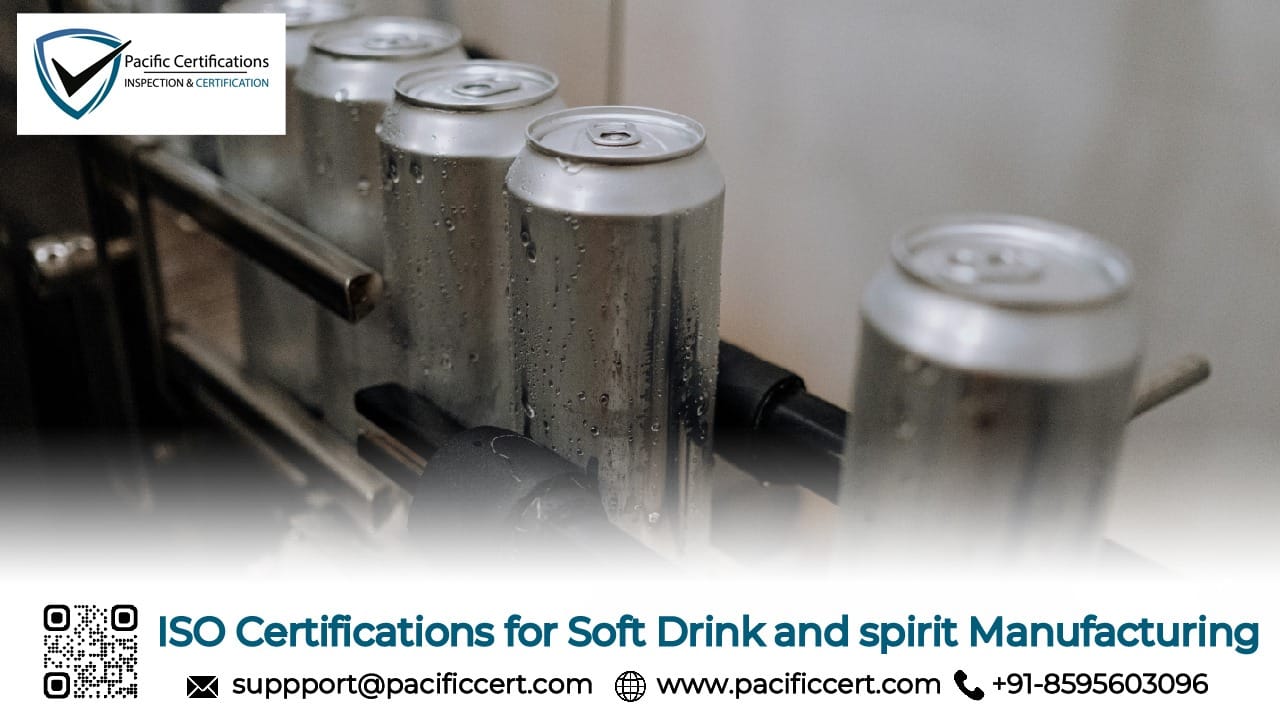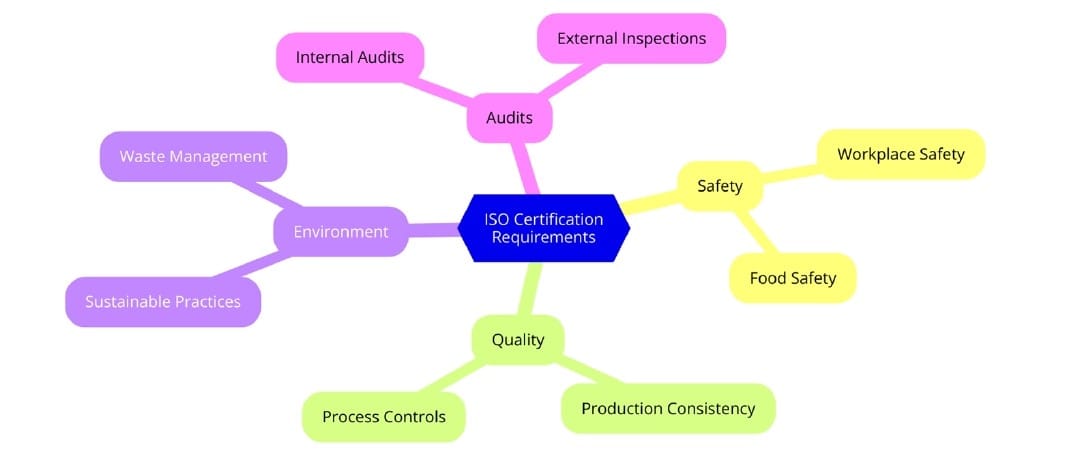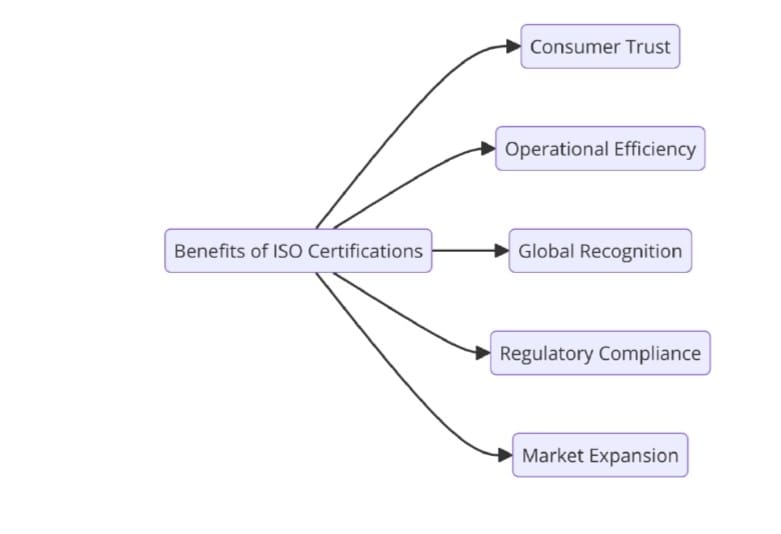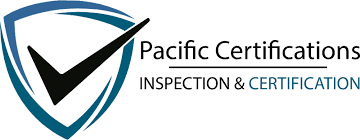ISO Certifications for Soft Drink and spirit Manufacturing Businesses, Requirements and Benefits

Manufacturers in the soft drink and spirits industry face a rapidly changing landscape of consumer expectations and quality demands. ISO certifications offer a robust framework for ensuring quality, safety, sustainability, and operational excellence. With the growing focus on compliance and transparency in 2024, obtaining ISO certifications is not just a best practice but a competitive advantage.
ISO (International Organization for Standardization) standards provide globally recognized guidelines that promote consistency, quality, and safety in various industries, including soft drinks and spirits. These standards help manufacturers establish best practices, maintain consumer trust, and ensure regulatory compliance. For manufacturers, adhering to ISO standards signifies a commitment to operational excellence and consumer satisfaction.

Applicable ISO Standards for Soft Drink and Spirit Manufacturing
The beverage industry involves complex processes, from sourcing raw materials to packaging. Below are the key ISO certifications that apply to this sector:
ISO 9001: Quality Management System (QMS):
ISO 9001 ensures the consistent quality of products and services. For soft drink and spirit manufacturers, this standard focuses on streamlining production processes, reducing waste, and meeting customer requirements effectively.
ISO 22000: Food Safety Management System (FSMS):
This standard integrates the principles of HACCP (Hazard Analysis and Critical Control Points) with ISO's structure, ensuring the safety of beverages during production, storage, and distribution. It addresses food safety hazards unique to the beverage sector.
ISO 14001: Environmental Management System (EMS):
ISO 14001 guides organizations in managing environmental responsibilities, such as reducing waste and energy consumption. Given the environmental impact of beverage production, this standard promotes sustainable practices.
ISO 45001: Occupational Health and Safety:
This standard ensures safe working conditions for employees. Soft drink and spirit manufacturing often involve handling chemicals and machinery, making ISO 45001 vital for minimizing workplace hazards.
ISO 50001: Energy Management System:
ISO 50001 focuses on energy efficiency, helping manufacturers optimize energy usage and reduce costs. With rising energy costs and a push for sustainability, this certification has become essential.
ISO 17025: Testing and Calibration Laboratories:
For manufacturers with in-house labs, ISO 17025 ensures that testing methods are accurate and reliable. It is particularly relevant for quality control during beverage production.
ISO 26000: Social Responsibility:
Although not a certifiable standard, ISO 26000 provides guidance on social responsibility. For beverage manufacturers, it promotes ethical practices in sourcing and production.
Click here to find out more applicable standards to your industry
At Pacific Certifications, we specialize in auditing and issuing certifications for ISO standards relevant to the soft drink and spirit manufacturing industry. Our experienced auditors ensure a seamless process, providing thorough evaluations to verify compliance with international standards.
By partnering with us, manufacturers can achieve the certifications they need to build consumer trust and comply with regulatory requirements.
Requirements of ISO Certifications for Soft Drink and spirit Manufacturing
Each ISO standard has distinct requirements designed to address specific aspects of soft drink and spirit manufacturing. Here’s a breakdown of the requirements for each standard relevant to the industry:

ISO 9001: Quality Management System (QMS)
- Context of the Organization
- Identify internal and external issues affecting quality.
- Determine the needs and expectations of interested parties (e.g., customers, suppliers).
Leadership
- Establish a quality policy aligned with organizational goals.
- Assign roles and responsibilities for quality management.
Planning
- Identify risks and opportunities to improve processes.
- Set measurable quality objectives.
Support
- Ensure resources (people, infrastructure, and environment) are adequate.
- Maintain competence through training and skill development.
Operation
- Implement processes to deliver consistent product quality.
- Manage customer requirements effectively.
Performance Evaluation
- Monitor, measure, and analyze performance.
- Conduct internal audits and management reviews.
Continual Improvement
- Identify areas for improvement and implement corrective actions.
ISO 22000: Food Safety Management System (FSMS)
Food Safety Policy
- Develop a policy to ensure the safety of beverages.
Hazard Analysis and Critical Control Points (HACCP)
- Identify food safety hazards at each production stage.
- Establish control measures and critical limits.
Prerequisite Programs (PRPs)
- Maintain hygiene, sanitation, and safe handling procedures.
Traceability System
- Implement mechanisms to trace ingredients and products throughout the supply chain.
Communication
- Ensure effective communication with suppliers, stakeholders, and regulatory authorities.
Management Commitment
- Demonstrate top management’s dedication to food safety.
Verification and Validation
- Regularly test and verify food safety systems.
ISO 14001: Environmental Management System (EMS)
Environmental Policy
- Commit to pollution prevention, compliance with regulations, and continual improvement.
Environmental Aspects
- Identify and assess the environmental impacts of manufacturing activities.
Compliance Obligations
- Ensure adherence to local, national, and international environmental laws.
Objectives and Planning
- Set environmental improvement goals, such as reducing water use or emissions.
Operational Control
- Implement procedures to control activities that have a significant environmental impact.
Emergency Preparedness
- Develop and test response plans for environmental emergencies (e.g., chemical spills).
Monitoring and Measurement
- Track environmental performance indicators.
ISO 45001: Occupational Health and Safety
Risk and Hazard Identification
- Recognize workplace hazards, including physical, chemical, and ergonomic risks.
Legal Compliance
- Ensure compliance with health and safety regulations.
Employee Participation
- Involve workers in safety planning and decision-making.
Training and Awareness
- Educate employees on workplace safety procedures and emergency responses.
Incident Investigation
- Analyze workplace incidents to prevent recurrence.
Safety Controls
- Implement engineering controls, administrative measures, and personal protective equipment (PPE).
Continuous Monitoring
- Conduct regular safety audits and inspections.
ISO 50001: Energy Management System
Energy Policy
- Commit to efficient energy use and improvement.
Energy Planning
- Conduct an energy review and identify areas of significant energy consumption.
Objectives and Targets
- Set measurable energy-saving goals.
Operational Controls
- Optimize equipment and processes to reduce energy use.
Performance Evaluation
- Monitor energy performance indicators (EnPIs).
Continual Improvement
- Regularly review and update energy management practices.
ISO 17025: Testing and Calibration Laboratories
Impartiality and Confidentiality
- Ensure unbiased testing and protect client data.
Management Requirements
- Establish a quality management system for laboratory operations.
Resource Management
- Ensure proper training for laboratory personnel.
- Maintain calibrated and validated equipment.
Process Requirements
- Develop robust testing and calibration methods.
- Verify the accuracy of test results.
Document Control
- Maintain and update procedural and technical documents.
ISO 26000: Social Responsibility
Organizational Governance
- Operate with integrity, accountability, and transparency.
Labor Practices
- Promote fair treatment, diversity, and workplace safety.
Environmental Responsibility
- Minimize environmental impact through sustainable practices.
Fair Operating Practices
- Avoid corruption and support ethical business operations.
Consumer Issues
- Ensure truthful product labeling and responsible marketing.
Community Involvement
- Contribute positively to local communities.
By meeting these requirements, soft drink and spirit manufacturers can improve quality, enhance safety, and gain consumer trust.
Whether it’s ISO 9001, ISO 22000, or other standards, connect with us today at [email protected] or call +91-8595603096 to explore tailored certification solutions.
Benefits of ISO Certifications for Soft Drink and spirit Manufacturing

Enhanced Product Quality: ISO certifications ensure that products meet stringent quality benchmarks. This is especially critical in beverages, where consistency defines customer loyalty.
Regulatory Compliance: Adherence to ISO standards ensures compliance with local and international regulations, reducing the risk of penalties and recalls.
Improved Operational Efficiency: By optimizing processes, manufacturers can reduce waste, save resources, and improve productivity.
Strengthened Consumer Trust: ISO-certified manufacturers demonstrate a commitment to quality and safety, boosting consumer confidence in their brands.
Sustainability and Environmental Stewardship: With standards like ISO 14001 and ISO 50001, manufacturers can adopt sustainable practices, improving their reputation and reducing operational costs.
Global Market Access: ISO certifications are recognized worldwide, enabling manufacturers to export products without additional compliance hurdles.
As 2024 unfolds, the beverage industry faces a mix of challenges and opportunities. Consumer demand for organic and eco-friendly products is rising, prompting manufacturers to adopt sustainable practices. ISO certifications like ISO 14001 and ISO 50001 are particularly relevant in this context, helping companies minimize their environmental footprint.
Additionally, advancements in beverage production technology are enabling greater automation and precision, emphasizing the need for robust quality and safety frameworks. For manufacturers aiming to stay competitive, achieving ISO certifications is a strategic move.
If you’re ready to elevate your manufacturing processes and build trust with consumers, Pacific Certifications can help you achieve ISO certifications. Whether it's ISO 22000 for food safety or ISO 14001 for sustainability, our expert auditors are here to guide you. Take the first step toward certification by contacting us at [email protected].
Pacific Certifications is accredited by ABIS, in case you need support with ISO certification for your Soft Drink and spirit Manufacturing business, please contact us at [email protected] or +91-8595603096
FAQs: ISO Certifications for Soft Drink and spirit Manufacturing
What are the most important ISO standards for soft drink and spirit manufacturing?
Key standards include ISO 9001 (Quality Management), ISO 22000 (Food Safety), ISO 14001 (Environmental Management), and ISO 45001 (Occupational Health and Safety).
Why is ISO 22000 critical for beverage manufacturers?
ISO 22000 ensures the safety of beverages by addressing food safety hazards during production, storage, and distribution, protecting consumer health.
How does ISO certification benefit manufacturers?
ISO certifications enhance product quality, ensure regulatory compliance, improve operational efficiency, and boost consumer trust.
Can ISO certifications help with sustainability?
Yes, certifications like ISO 14001 and ISO 50001 enable manufacturers to adopt sustainable practices, reduce waste, and improve energy efficiency.
How long does it take to achieve ISO certification?
The timeframe varies depending on the organization’s size, readiness, and the specific standard. It typically ranges from a few months to a year.
How can Pacific Certifications assist with ISO compliance?
Pacific Certifications provides auditing and certification services, ensuring that manufacturers meet the requirements of relevant ISO standards.
Ready to get ISO certified?
Contact Pacific Certifications to begin your certification journey today!
Suggested Certifications –
Read more: Pacific Blogs

